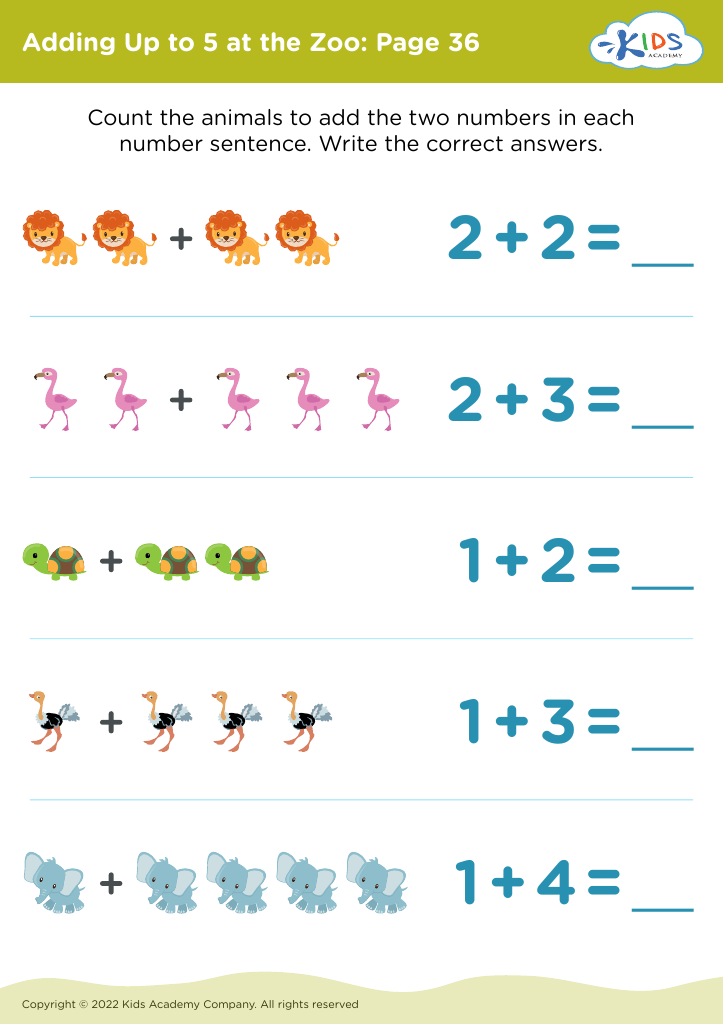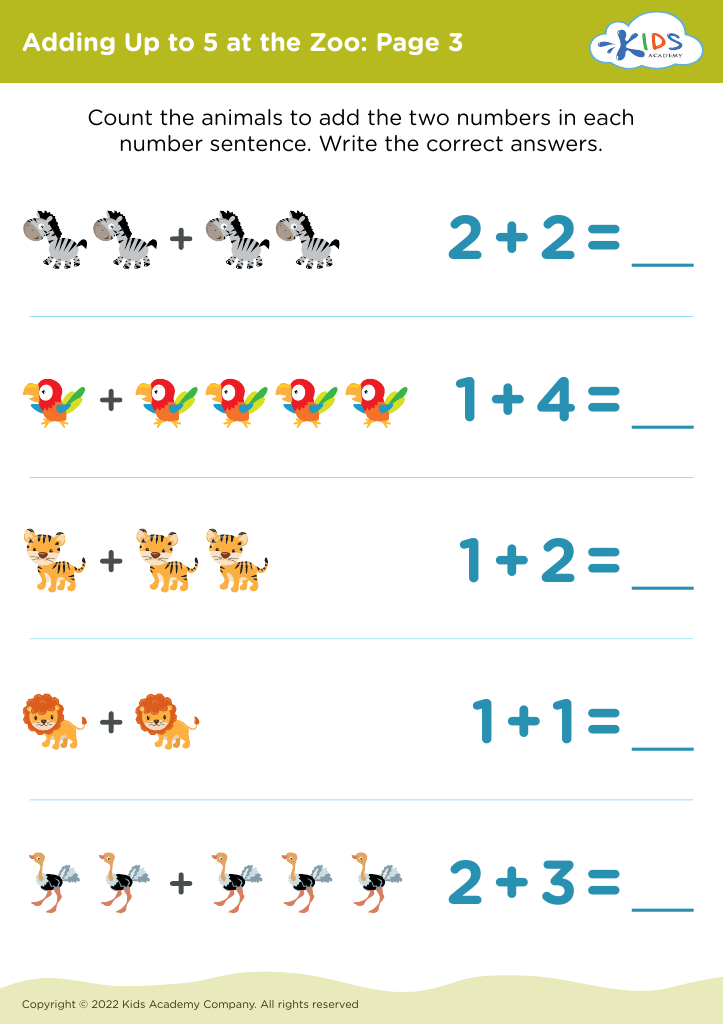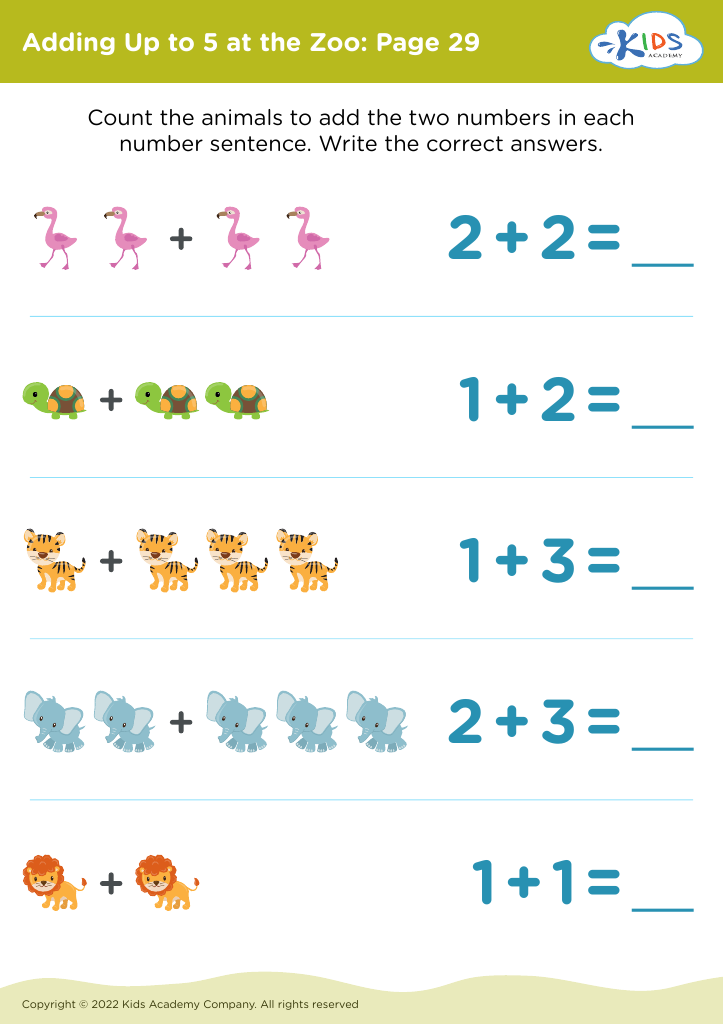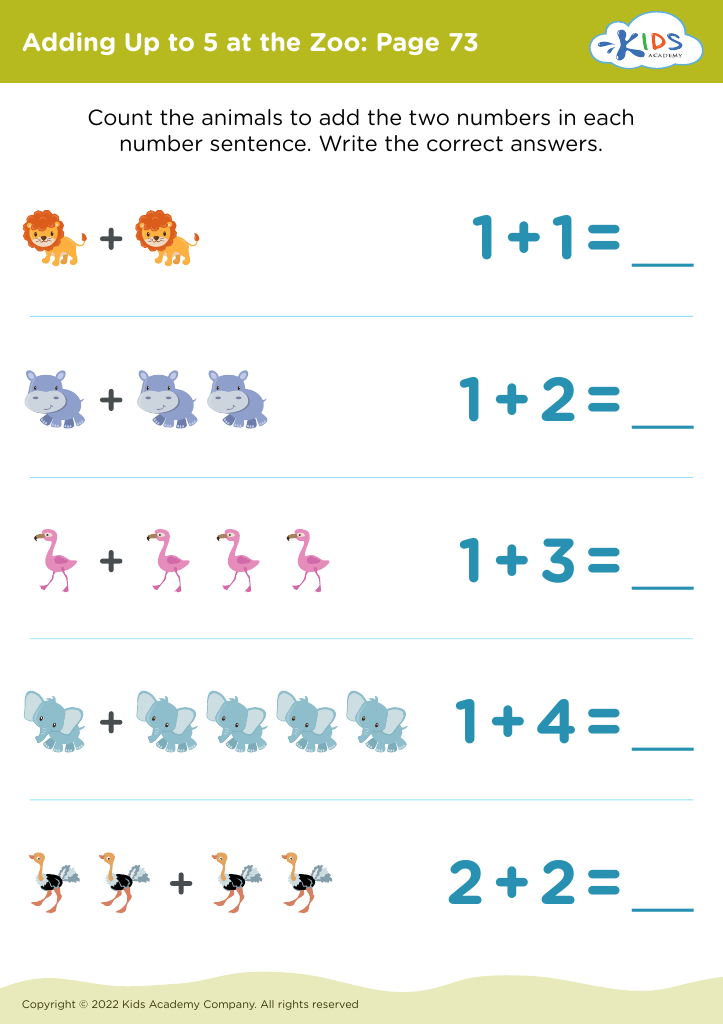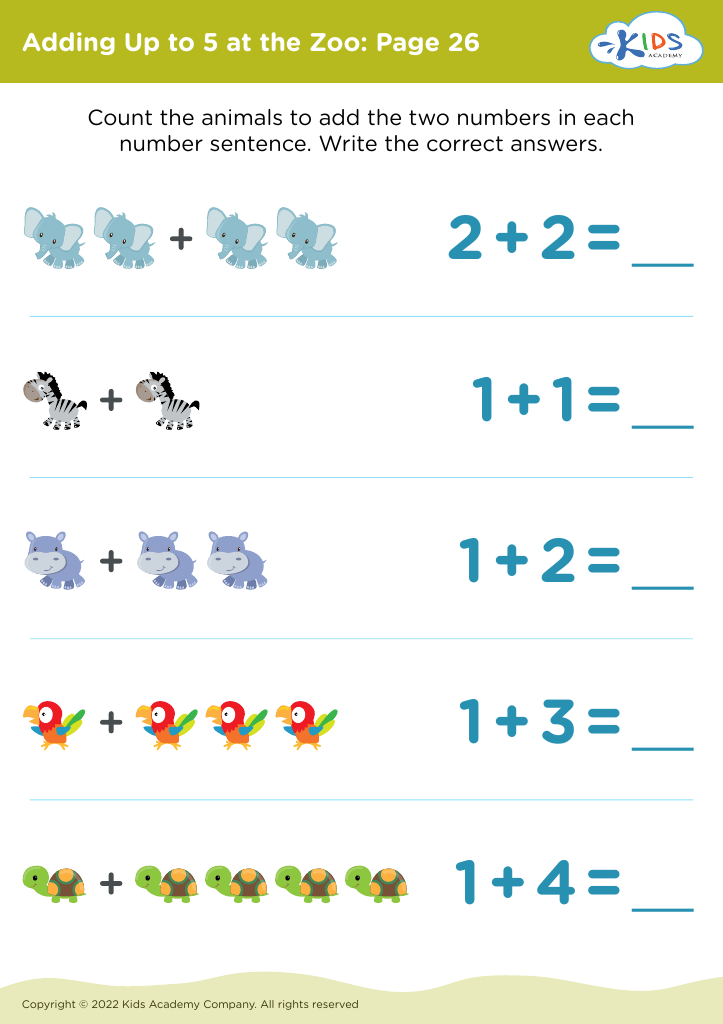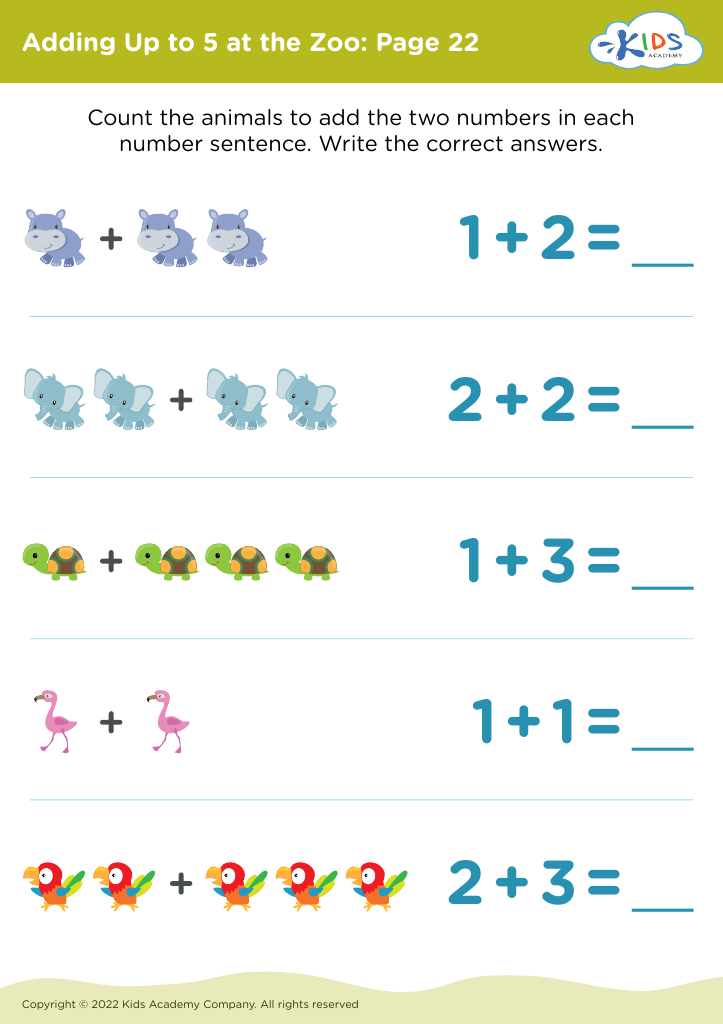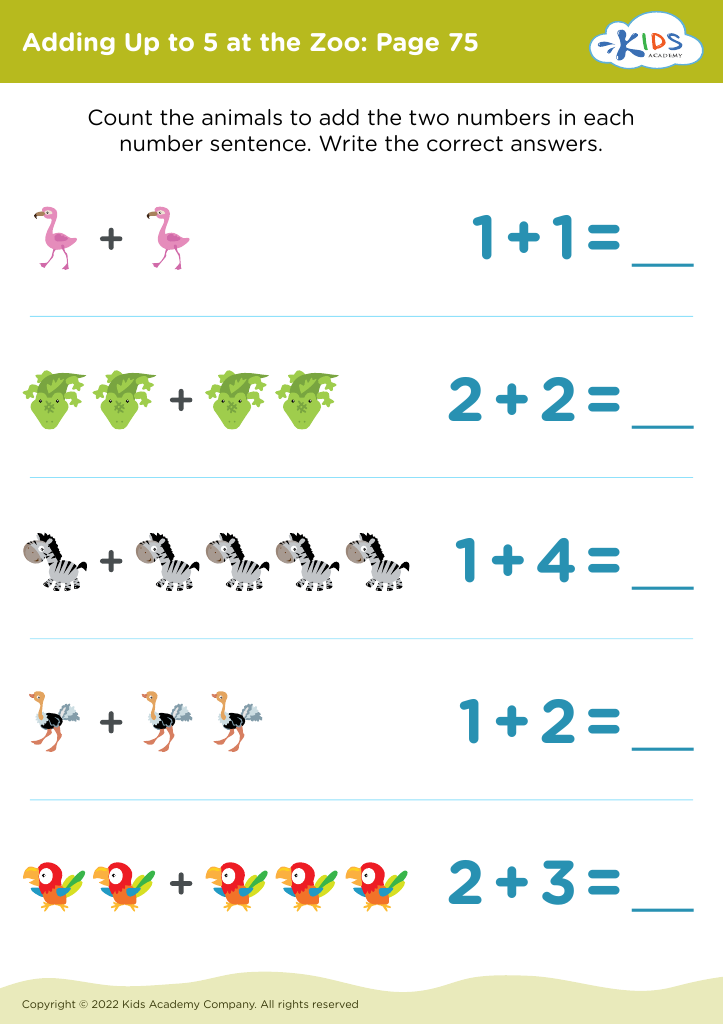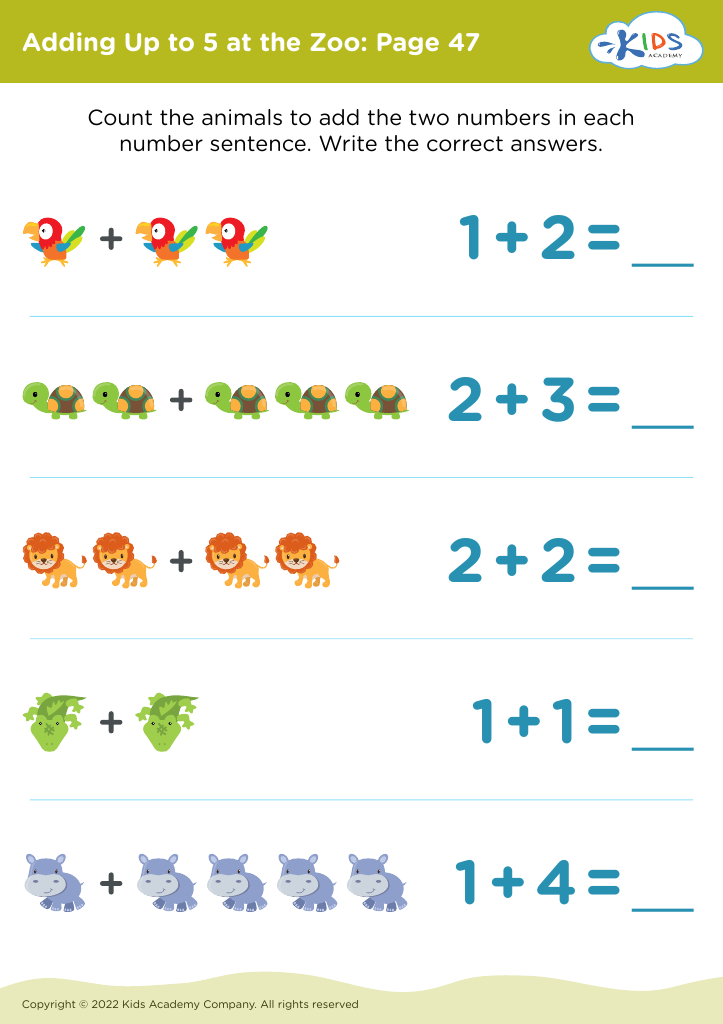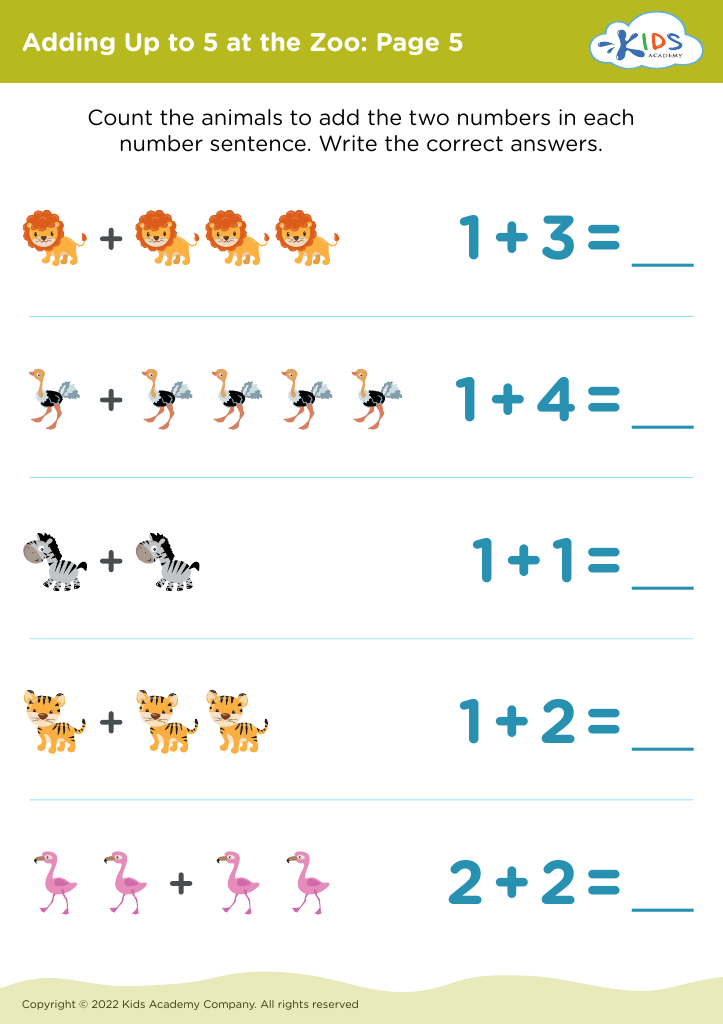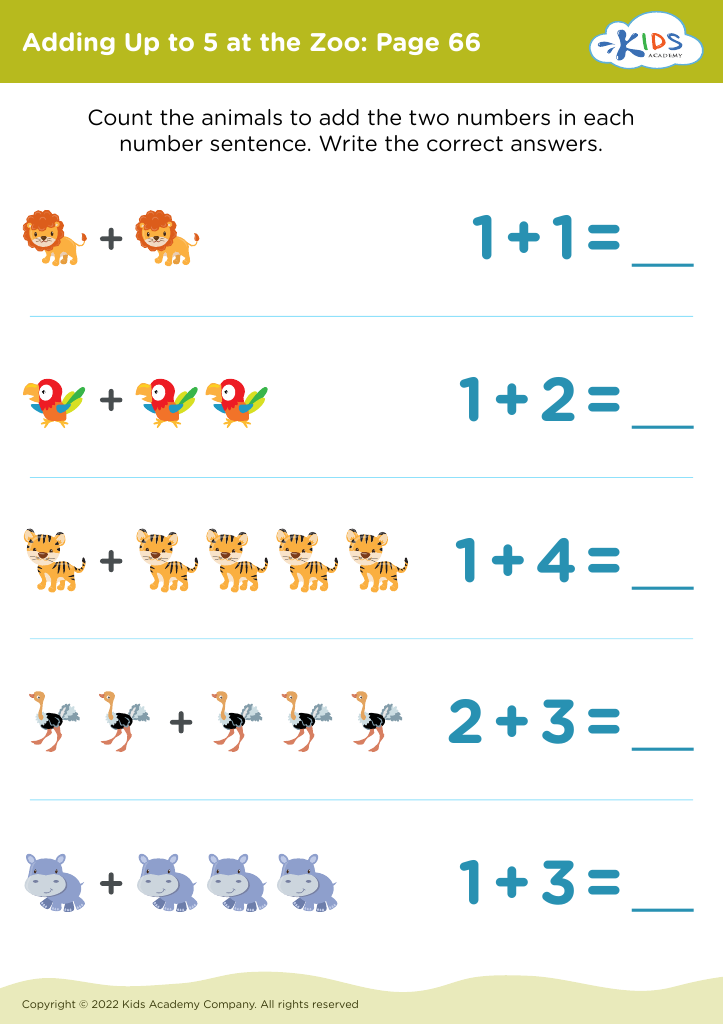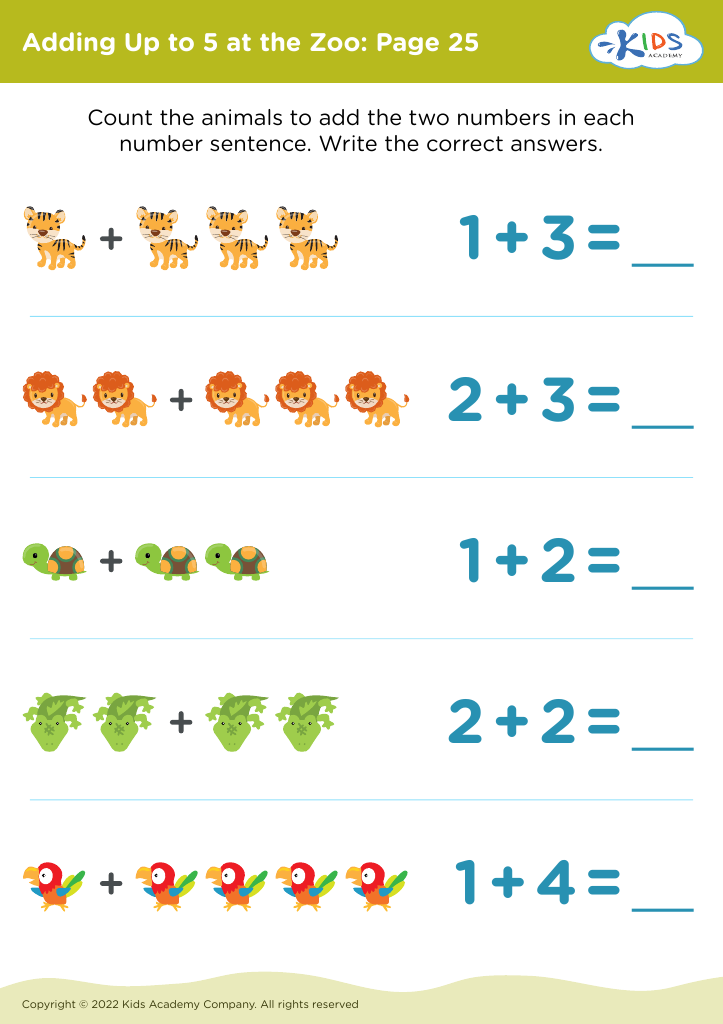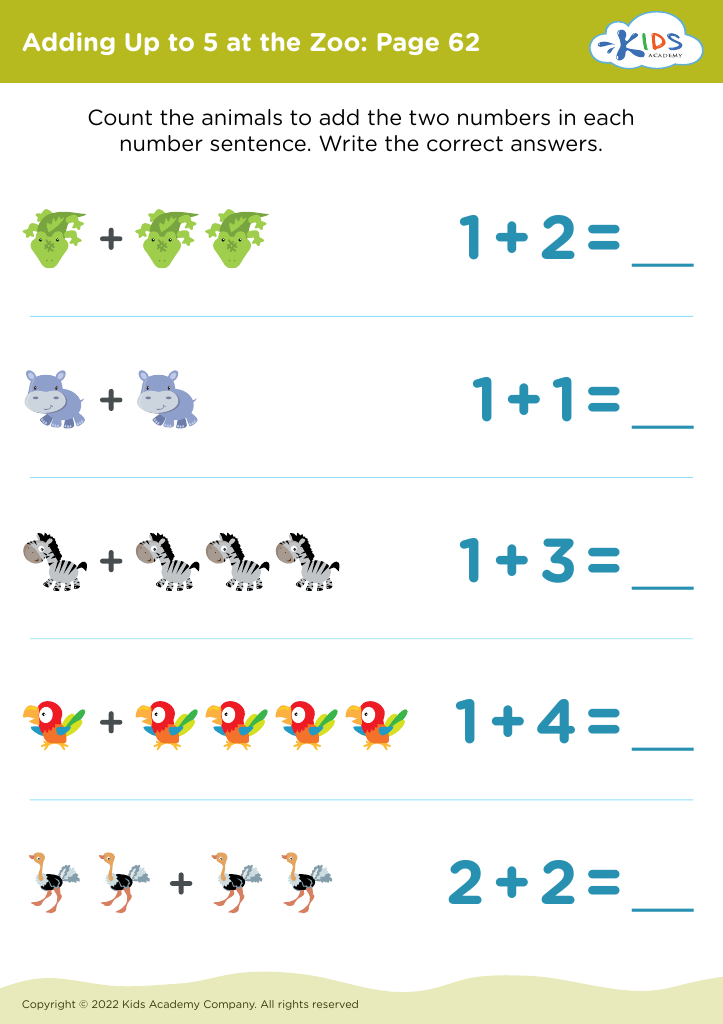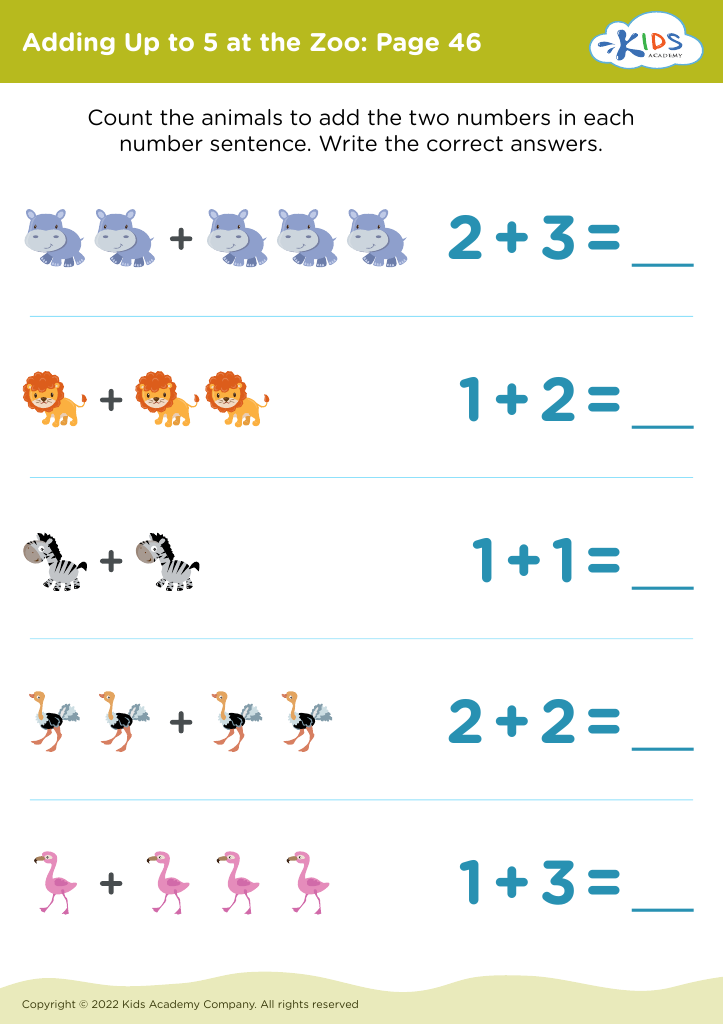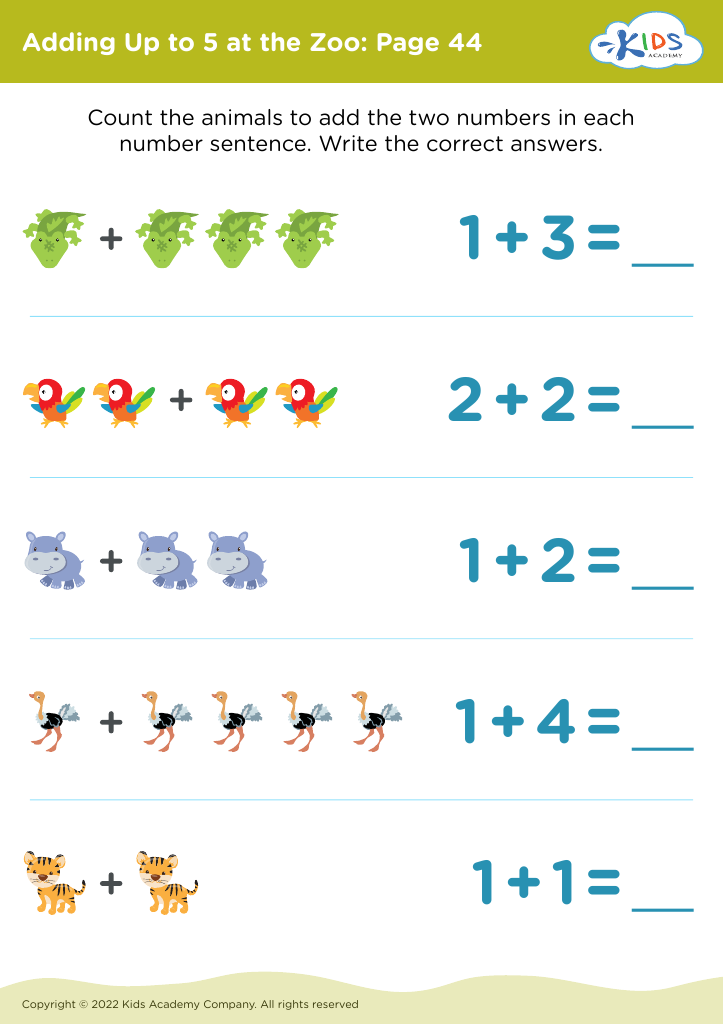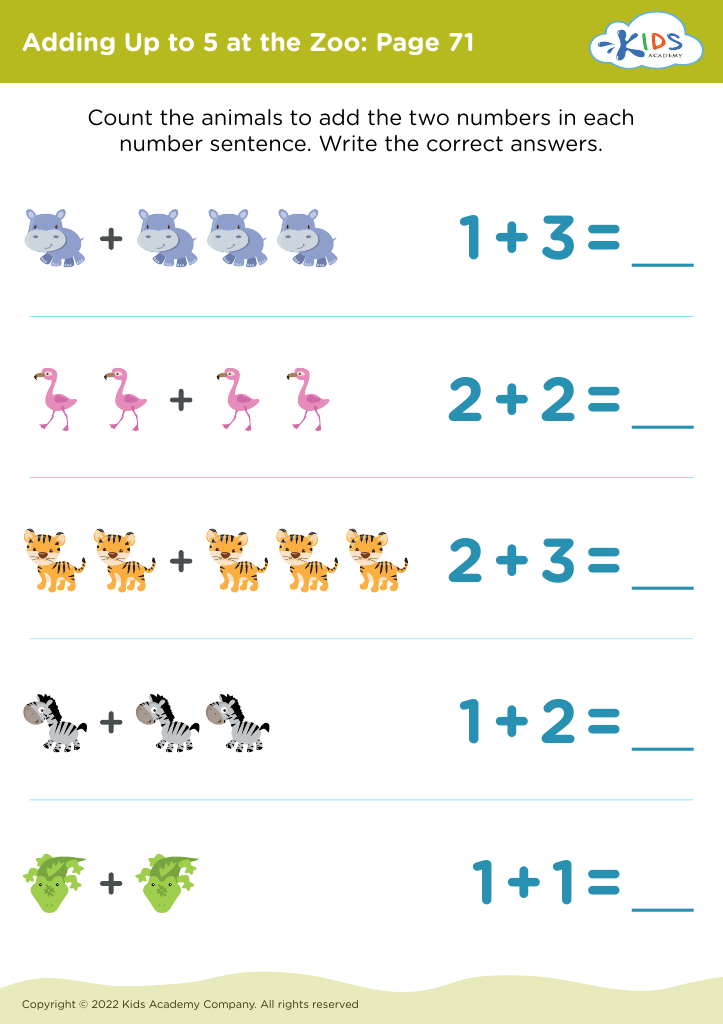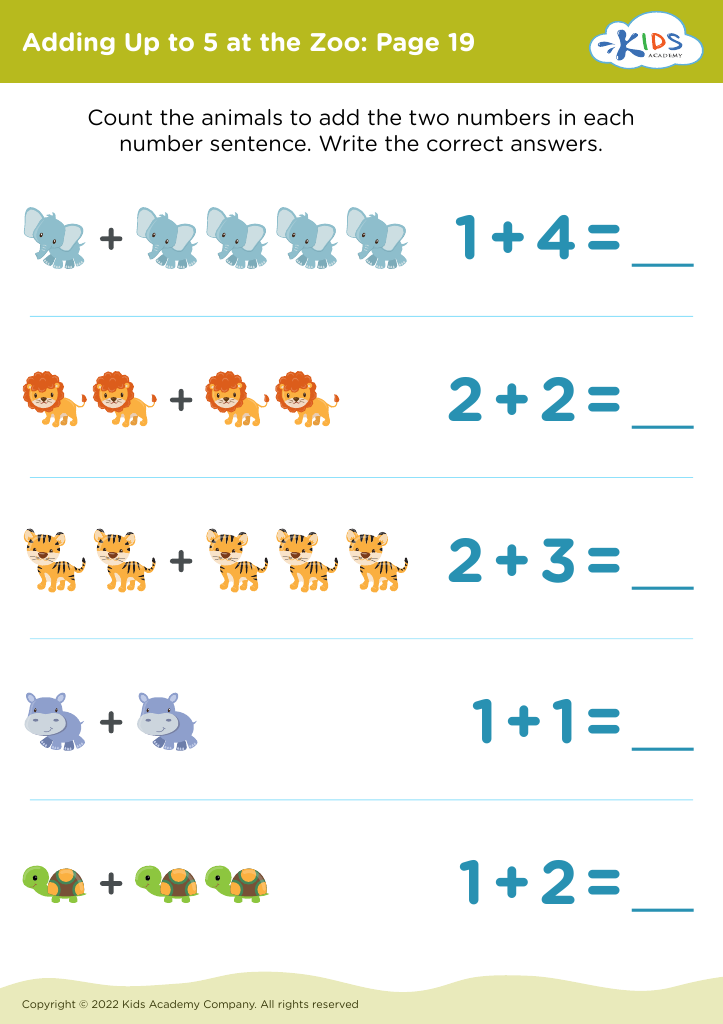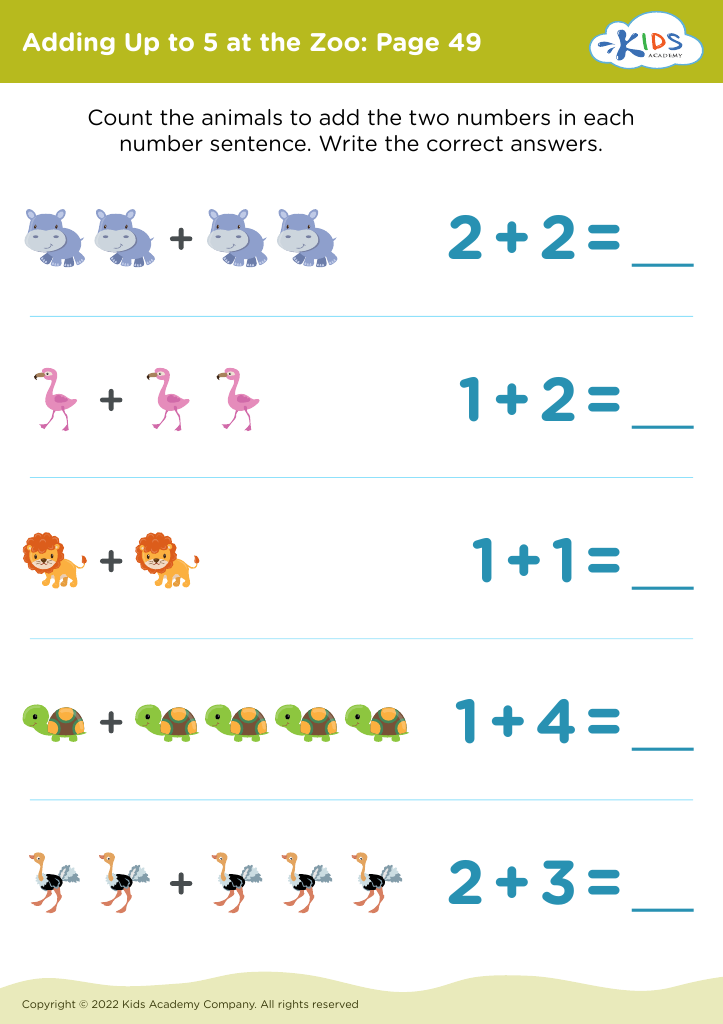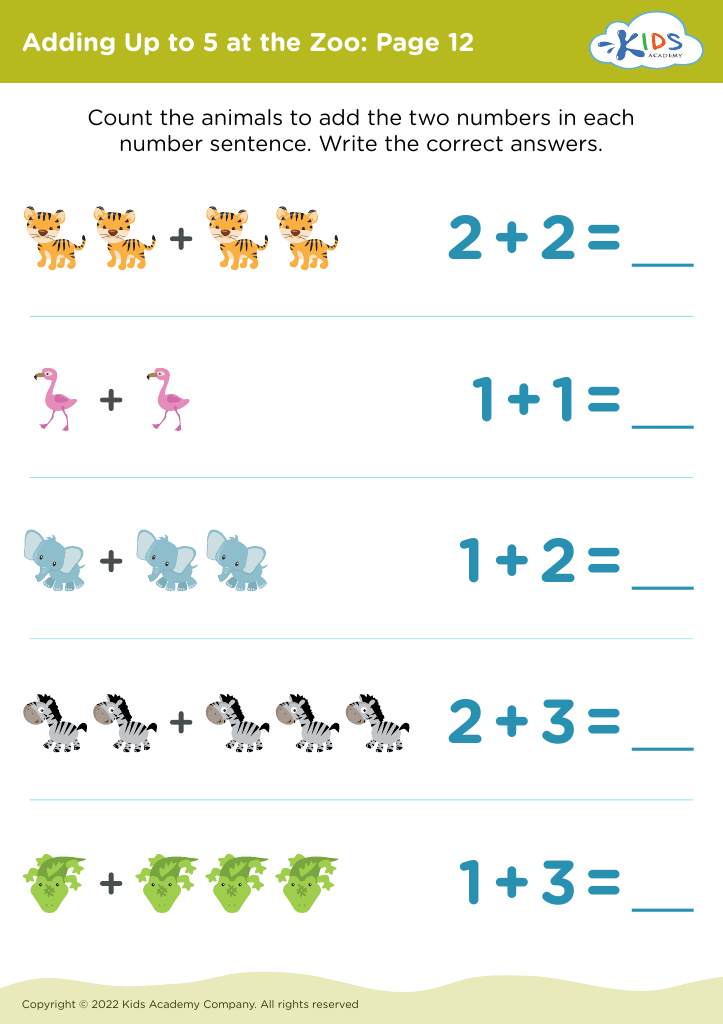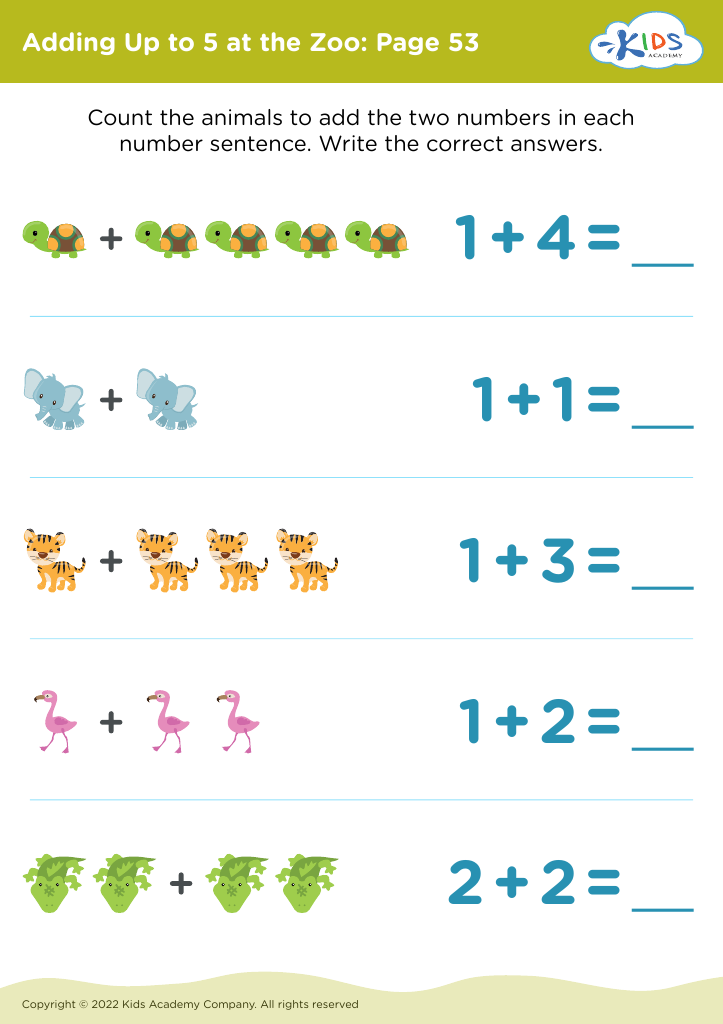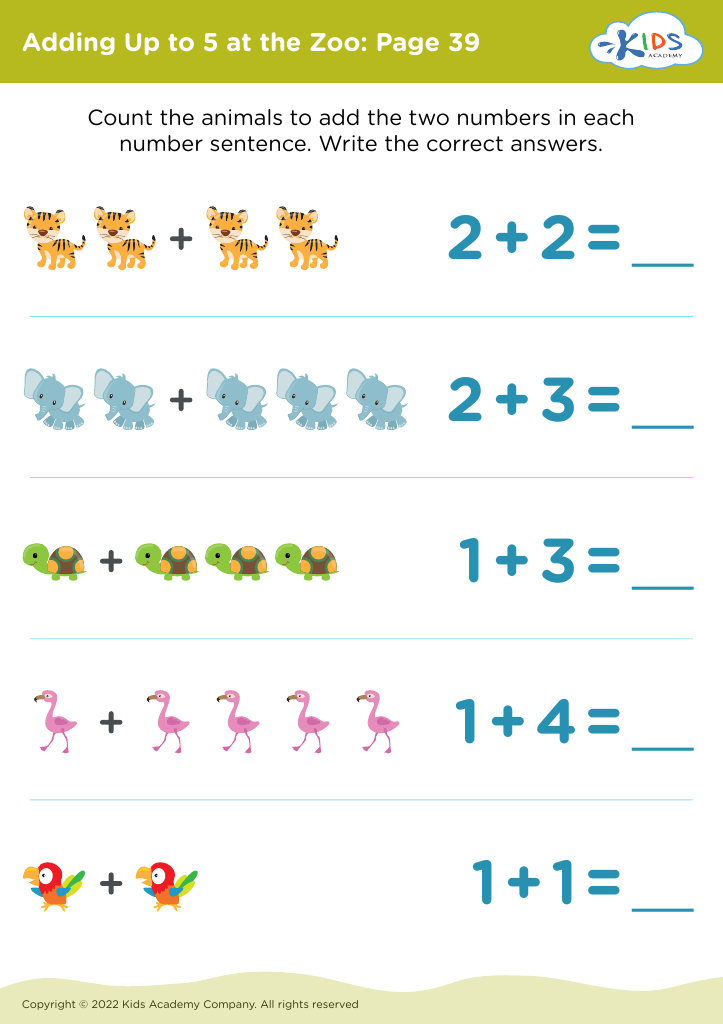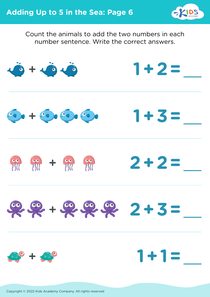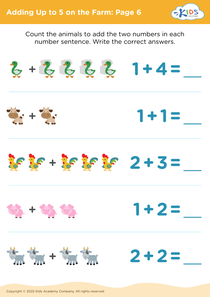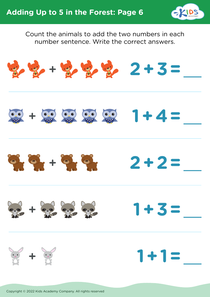Addition skills Adding at the Zoo Worksheets for Ages 3-6
20 filtered results
-
From - To
Explore our fun and engaging "Addition Skills: Adding at the Zoo" worksheets designed for children aged 3-6! This collection of interactive printables makes learning basic addition exciting by incorporating vibrant zoo themes and adorable animal images. Each worksheet encourages young learners to practice simple addition problems, promoting foundational math skills in a playful context. Ideal for preschool, kindergarten, or homeschool environments, these resources ensure a ready-to-learn mindset in a familiar and enjoyable setting. Kickstart your child’s journey into mathematics while fostering creativity and a love for learning with our entertaining and educational zoo-themed activities! Perfect for both parents and educators!
Parents and teachers should prioritize addition skills for young children, especially through engaging activities like "Adding at the Zoo," for several reasons. First, foundational mathematical skills developed in early childhood, such as counting and addition, are crucial for future academic success. By incorporating playful themes around animals, children are more likely to engage, making learning enjoyable and relevant.
Addition skills enhance cognitive development, encouraging critical thinking, problem-solving, and logical reasoning. When children count the number of animals they see at the zoo or add the number of legs different animals have, they practice mathematical concepts in real-world contexts. This hands-on learning approach reinforces numerical understanding and fosters a love for math.
Moreover, skills in addition can improve children's confidence. Mastering basic math empowers them to take on more complex challenges in later grades. Additionally, activities involving counting and addition encourage social interaction among peers, promoting collaboration and communication skills, which are essential for overall development.
In summary, focusing on addition skills through enjoyable activities can lay a solid foundation for young learners, fostering a positive attitude toward mathematics while promoting essential cognitive, social, and emotional growth essential for their future.
